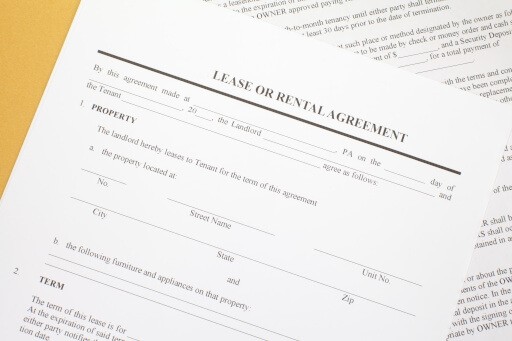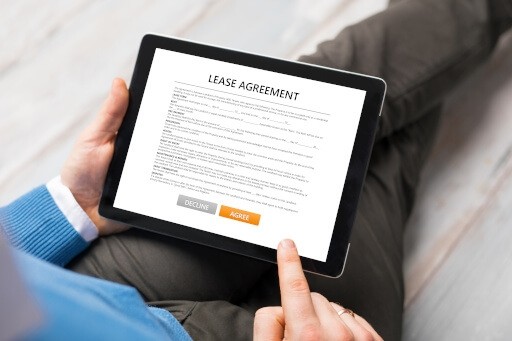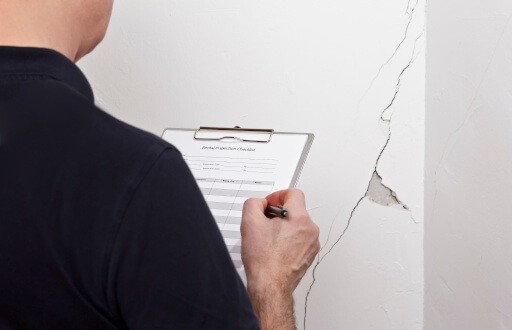Collecting a security deposit helps protect you from being out of pocket if tenants cause damage or skip out on a month’s rent. But if you don’t handle the security deposit properly, you could be burned.
Each state (and some cities) has laws on how landlords must treat a tenant’s security deposit. Why? Although the tenant hands over the security deposit money to you, it’s not really your money. A security deposit is merely there for you to use if you need to. If there are no damages (beyond normal wear and tear) and the rent has been paid in full, you must return the security deposit.
Why states have strict withholding laws
Since landlords hold the security deposit, it can be tempting for some dishonest types to simply keep the deposit, whether they’re entitled to it or not. To combat this problem, states have penalties for landlords who don’t do the right thing. Some states are stricter than others.
Montana, for example, requires landlords to return the security deposit within 10 days after the tenant moves out (if there are no deductions). Most states give landlords between 21 and 60 days to return the deposit. And all states require landlords to provide an itemized list of charges against the security deposit.
Make sure to look up your state’s law. You need to return the security deposit by the deadline for your state. You might also need to keep the security deposit in a separate bank account. And some states limit how much you can charge for security. If you break a security deposit law, your tenant could sue you, often times for 2-3x the deposit amount.
A chart on maximum withholding
If you don’t follow your state’s rules for the handling and returning of the security deposit, you could be sued and not just for the security deposit. If you wrongfully withhold a security deposit, your tenant can sue you and be awarded up to three times the amount of the security deposit.
|
State |
Maximum amount allowed for wrongful withholding |
|
Alabama |
2x |
|
Alaska |
2x |
|
Arizona |
2x |
|
Arkansas |
2x |
|
California |
3x |
|
Colorado |
3x |
|
Connecticut |
2x |
|
Delaware |
2x |
|
Florida |
1x |
|
Georgia |
3x |
Note that there can be more to these withholding amounts than simply one, two, or three times the security deposit. Some states, for example say the tenant can get back the security deposit plus $200.
Or some states might award punitive damages in addition to the security deposit if the court believes the landlord acted in bad faith.
A court might award punitive damages if you purposely and intentionally defraud your tenants by systematically withholding security deposits, for example. That's a whole different ballgame than, say, accidentally missing the deadline to return the deposit by a couple of days one time. Courts do not, as a rule, look favorably on landlords who purposely defraud tenants.
Other monetary awards winning tenants usually get are attorney fees and court costs. The above table provides a good overview of how much the various state courts can award, but it’s always best to look up the exact law for your state.
Having a separate account
Some states require landlords to keep the security deposit in a separate, interest-bearing account. This helps ensure you don’t wrongfully withhold the deposit. After all, if you make it a habit to use the security deposit for your personal use, you might not have it to return when your tenant moves out.
Laws vary on this aspect of the security deposit as well. My state of Georgia, for example, only requires landlords who own more than 10 units to have a separate security deposit account. Some states require all landlords to put security deposit money in an escrow account, and some states have no requirements at all.
If you don’t follow all the security deposit laws for your state, you could be ordered to pay two or three times the security deposit (or more) to your tenant.
Limits on the security deposit
Some states have limits on how much the security deposit can be. If you are charging more than what your state allows, you might need to pay a fine. At the very least, you’ll start off on the wrong foot if a tenant has to call you out on this.
Eleven states limit the security deposit to one month’s rent:
- Alabama
- Delaware
- Hawaii
- Kansas
- Massachusetts
- Nebraska
- New Hampshire
- New Mexico
- North Dakota
- Rhode Island
- South Dakota
Four states limit the security deposit to one-and-a-half months’ rent:
- Arizona
- Michigan
- New Jersey
- North Carolina
Ten states allow landlords to ask for up to two months’ rent:
- Alaska
- Arkansas
- California
- Connecticut
- Iowa
- Maine
- Maryland
- Missouri
- Pennsylvania
- Virginia
Nevada allows landlords to ask for up to three month’s rent.
And 24 states have no limits whatsoever on how much security deposit a landlord can require:
- Colorado
- Florida
- Georgia
- Idaho
- Illinois
- Indiana
- Kentucky
- Louisiana
- Minnesota
- Mississippi
- Montana
- New York
- Ohio
- Oklahoma
- Oregon
- South Carolina
- Tennessee
- Texas
- Utah
- Vermont
- Washington
- West Virginia
- Wisconsin
- Wyoming
Note that just because you can ask for as much as you want, you don’t want to price yourself out of the market, either. It’s best to charge only what you can reasonably expect to get. You can, however, usually get (and ask) more for a furnished unit. And some landlords who rent to tenants with low or no credit often ask for a larger deposit. Just make sure you follow your state law.
Bottom line
The security deposit is probably the most contentious aspect of the landlord/tenant relationship. But if you follow the laws for your state and jurisdiction, it’s unlikely you’ll be sued. Even if you are, you'll probably win if you’ve done everything by the book and can prove it. Therefore, it's important to keep reports of all expenses related to security deposit deductions. With our expense tracking platform, you can summarize all of your rental expenses in one place and export them to CSV and PDF formats. With all of your forms backed up for seven years, you'll have your bases covered.











